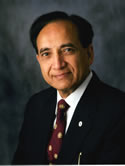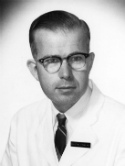| Abstract: |
Purpose: To evaluate the feasibility and efficacy of a strategy using induction chemotherapy followed by radiation therapy (RT) as a means of organ-function preservation in patients with advanced oropharynx cancer. Patients and Methods: From January 1983 to December 1990, 33 patients with advanced squamous cell oropharynx cancer whose appropriate surgical management would have required a tongue procedure and potential total laryngectomy were treated with one to three cycles of cisplatin (CDDP)-based induction chemotherapy. Patients with a complete response (CR) or partial response (PR) at the primary site then received definitive external-beam RT with or without interstitial implant with or without neck dissection with surgery to the primary tumor site reserved for disease persistence or relapse; patients with less than a PR after chemotherapy had appropriate surgery and postoperative RT recommended. Results: With a median follow-up period of 6.2 years, actuarial overall and failure-free survival rates at 5 years are 41% and 42%, respectively. Chemotherapy toxicity contributed to the death of two patients and was possibly a factor in two others. Local control was achieved in 14 patients (42%) without any surgery to the larynx or tongue. Among 13 patients currently alive, all had a preserved larynx and only one required tongue surgery; 12 of 13 have speech subjectively described as always understandable; and nine of 13 have no significant restrictions in their diet. Conclusion: This treatment program is feasible and effective in patients with advanced oropharynx cancer and produces an excellent functional outcome in most long-term survivors. Modifications to optimize patient selection, minimize toxicity, and improve local control are indicated. The relative toxicity, efficacy, and functional outcome provided by this and other chemotherapy and RT programs versus either standard surgery and/or RT options can only be addressed in a randomized comparison of these therapies. |












